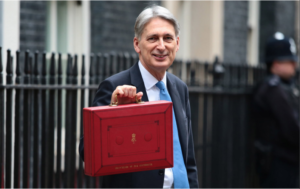
The 2018 Autumn Budget was predicted to be a relatively ‘quiet’ one, allowing the Chancellor enough room to manoeuvre on Brexit whatever form it takes. As far as residential property is concerned, it almost lived up to its billing with changes to the associated tax regime more benign than we feared. Although not overtly mentioned by the Chancellor in his statement to the House of Commons this afternoon, the headline grabber (litmus-tested by the Prime Minister at her party conference earlier in the month) was the additional SDLT surcharge for ‘non-resident’ buyers. The proposal is included in the written Budget Report (released today) and, whilst the detail is light, there is reference to a “surcharge of 1%”, an improvement on the 3% mooted in the build up to today’s statement. Full consultation is promised in January 2019. The Chancellor made a further amendment to SDLT by extending first-time buyers’ relief so that buyers of shared ownership property can benefit. The relief doesn’t apply to purchases over £500,000 and therefore has limited impact on the prime central markets. However, it does raise the question of whether such reliefs, together with the government’s
Help To Buy Scheme (reported to be closing in 2023), are (perversely) working to inflate prices for first-time buyers. Meanwhile, the Chancellor announced a raft of welcome measures to increase the supply of housing, including plans to unlock 18,000 new homes in East London through improvements to the Docklands Light Railway. In a positive for housebuilders, Sir Oliver Letwin published his independent review on the gap between housing completions and the amount of land allocat-ed or permissioned. The review found no evidence to support Labour’s claims that developers are ‘land-banking’ for profit. Finally, as expected, Capital Gains Tax made an appearance in the statement albeit not, as many had predicted, to reduce the overall rate and/or to introduce a new relief when you sell to your tenant (both suggested as ways to encourage buy-to-let owners to sell). Instead, the Chancellor took aim at lettings relief, limiting this to where the landlord is in shared occupancy with the tenant. He also halved again the final exemption period for PPR relief from 18 to 9 months, which may well put pressure on some owners when it comes in to force. Whilst the Chancellor has committed to “keeping family homes out of capital gains tax”, properties held as investments remain firmly in his cross hairs.
With Alphabet Inc (Google’s parent Co), Facebook, Amazon and Apple all in the midst of expanding their offices in London (or building new European HQs), there may be some frustration around the new digital services tax (more so as we embark on negotiating a trade agreement with the US). However, given the tax is lower than that proposed by the EU (and targeted at the tech giants), it seems unlikely that it will dent London’s position as the leading tech City outside the US. Certainly, tech executives will welcome the Chan-cellor’s decision to allow US citizens (as well as those from Canada, Australia, New Zealand and Japan) to use e-passport gates at UK airports, reaffirming that the UK is very much ‘open for business’.
For those who had hoped for a radical reform of SDLT, it didn’t come and was never likely. In his response to the Chancellor’s statement, Jeremy Corbyn declared that “far from people’s hard work and sacrifices having paid off, as the Chancellor claims, this government has frittered it away with ideological tax cuts to the richest”. A reduction in the highest rates of SDLT would have only given credence to this rhetoric. We will publish more detailed commentary once the various consultation papers are published and the market reacts to the changes.

Richard Rogerson
CEO
020 3871 5800
richard@rfrproperty.com

